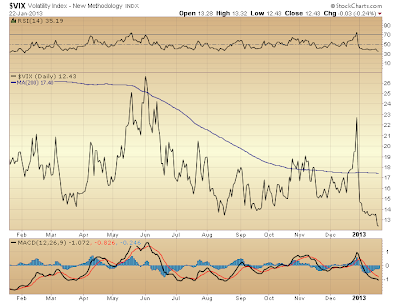Who would have guessed the two Marios—Monti and Draghi—had been
sheep dipped? You know,
the Oswald Treatment. Oh, those tricky
Brits!
Might this be but part of a larger European intrigue threatening the continent's Balkanization? Already in store are
referendums seeking Catalan and Scottish independence scheduled for a vote next year. An intention to destroy nations resulting in creation of countless micro-states, indeed, finds credible cause serving the usual criminal suspects. Likewise, this venture's objective is being openly proclaimed. Cutting through political smokescreens we can plainly see at work a modern day manifestation of "divide and conquer" ultimately aiming to consolidate global empire.
British prime minister David Cameron's long-anticipated
speech last week seeking a treaty revision to the European Union and proposing a referendum querying whether the U.K. should remain a member in fact appears a detonator minimally venturing activation of similar initiatives whose end additionally could threaten dissolution of the European Monetary Union. As Cameron's speech has been many months in the making—apparently delayed four times since June 2012—its timing might be thought significant. Following on
U.K. parliamentary blessing given to Scotland's independence bid, a purposeful intention to stir up rancor and division, no doubt, is accelerating.
This unfolding drama is a momentous turn—one certainly threatening a vulnerable status quo—and is not without supporting contributions from relevant U.S. officials. On January 9, 2013 U.S. assistant secretary of state for European and Eurasian Affairs, Philip H. Gordon, told a media briefing in London that Washington believed a British exit from the EU would run counter to U.S. interests. Gordon's "intervention" into what is being called "an emotive U.K. domestic debate" in fact made front-page news in Britain. Yet as this EU issue is largely a
political affair otherwise not high on the minds of people outside government, exposed is an operation to stir a pot cooking something nasty. If you read the
transcript of Gordon's media briefing, there's really nothing of front page value for a U.K. audience. That distinction rather belongs to U.S. media evidently preferring to turn a blind eye to a gold mine of Nazi-like tactics supported by a State Department official on board with
NATO's al Qaeda deployment in Syria reeking havoc there these past two years.
Ever the British monarchy's loyal lap dog, State Department spokeswoman Victoria Nuland slyly confirmed the nefarious nature of Gordon's deployment when she said, "We generally don't have assistant secretaries of state going out and giving press conferences and freelancing," adding "Assistant Secretary Gordon very much spoke for the administration." If only he had said something requiring affirmation of U.S. - U.K. relations! Then
the fuss pretending some row had developed might seem real.
Truth is, however, no split exists between bankrupt pillars of profligacy posted on either side of the Atlantic. Likewise, just as the thinnest of veils masks a murderous mayhem otherwise necessary to support the authority of those imposing the imperial game of bailout-make-believe—insanely and to no good end pretending the trans-Atlantic banking system is anything but hopelessly insolvent—so too exposed is a transparent hoax in suggestions some kind of rift is developing between the Axis of Fraud's captive government bodies.
Indeed, so-called U.S. "concern" that the U.K. remain a member of the European Union rather evidently ventures instead a joint proclamation of terms of surrender both bankrupt states seek to impose on the rest of the world, starting with E.U. member states. Nowhere has the U.S. raised objection to those principals the U.K. is insisting a renegotiated E.U. treaty embrace. So much for U.S. "dismay" over the clearly disruptive E.U. machinations of its British "partner."
A more real threat otherwise exposing U.S. endorsement of this British venture is found
in reference to security concerns supposedly shared by the U.S. and the E.U. Suddenly, the proliferation of instability throughout North Africa and
deployment of al Qaedo assets against western interests begins to appear a piece of the puzzle, all
denial of any impending European terror threat notwithstanding. Clearly, there is an intention to unleash an expanding wave of terrorism on continental Europe, this acting as a battering ram against sovereign resistance to imperial objectives venturing global empire.
Again, the timing of British Prime Minister Cameron's challenge to the European Union probably is more than merely coincidental. Today's centers of power derived from institutions gravely threatened by a thoroughly bankrupt banking system surely have arrived at a grave moment of life-or-death desperation. This reality lies at the core of an imperial cause whose only means of survival requires the expanding enslavement of a world today captive to its rotten architecture. Truly, destruction of a status quo whose usefulness has been outlived is no dilemma to those whose larger objective is extinguishing all things representative of classical humanist progress (which, of course, includes the United States). In Cameron's "vision for a new European Union, fit for the 21st century," only the more transparent is an intention to ratchet up an extreme climate of survival of the fittest. An E.U. built on "principles" representing nothing but a colonial manifesto worthy the 18th and 19th centuries, and certainly not the 21st, ultimately harmonious with what are, and always have been, Britain's imperial goals, signal an intention to pull the plug powering hopeless illusions whose usefulness, indeed, have expired. Truth is, too, any honest assessment of the policy direction major western powers have taken largely at the direction of imperial Britain in the post-Bretton Woods era by necessity must conclude a momentous transition of historic dimension always was on the agenda. Evidently, the hour now is come.
Acrimony is seen a means to achieving an objective aiming to divide and conquer, first a weakened European continent, and then the world at large. Although entirely impossible is any prospect Britain's initiative to alter the European Union could prove beneficial to any current member state, its ultimate goal of establishing a virtual colonial playground, this playing off competing parties vying for a piece of an otherwise shrinking pie, quite likely stands to be furthered in the midst of circumstance rife with vulnerability. These make for easy pickings likely materializing in break-away states effectively redrawing today's map in the not-too-distant future.
Like everything else in the land of make believe, where institutional change ever is slated to occur at some far off date, Britain's E.U. referendum proposed for the end of 2017 in all probability will never come to a vote. Yet if it ever does see the light of day, the result probably will bring a resounding "out." No matter, the objective of this, Britain's imperial intrigue, all too likely is being hastened with the mere threat of the E.U.'s dissolution. A bankrupt financial system can only the more quicken chaos necessary to transform vulnerable dupes into witting slaves. Little wonder, then,
German response to Cameron's initiative was a good bit more accommodating than was France's, this if only to keep an enemy close.
As for
the business community's perspective, theirs truly is a classic case of be careful
what you wish for. The E.U. Britain seeks effectively is slavery nirvana the likes of which many businesses today claim their ideal climate in which to profit. Pity many of these will be ruined over the course of getting there.
This present development plays well into credible prospect
a Weimar-like hyperinflation could visit the U.S. over the coming decade. To wit, a contractionary consolidation thought likely to precede a hyperinflationary blowout impossible to hide in any way like the past forty years, and the recent 5-10 years particularly, appears on the doorstep with imperial Britain signaling its intention to effectively pull the plug on the European Union. How is this specific outcome made more likely now? Through Britain's proclaimed intention that, the E.U. manifest the fullness of counterproductive imperial policies imposed over the past forty years, such as have led to the present day's profound vulnerability, with the alternative being either severe chaos in a terror-ridden climate or even greater weakness born of irreconcilable division. No matter which route sovereign nations of Europe choose, bottom line chaos looms. Sovereign authority stands to be crushed, and so capacity to sustain the burden of today's status quo will be irreversibly ruined. Many debts are at risk of grave compromise to be sure. So, credit market convulsion necessarily will be visiting the trans-Atlantic sometime in the not-too-distant future. Yet illegitimate debt being well-established more sacrosanct than God, a subsequent trip down Weimar Lane seems likely to follow.
Nowhere in his speech did Cameron recognize the plight of European nations gravely compromised already at the alter of misguided imperial policy. Nowhere from within the U.S. State Department was there a wit of admonishment for this oversight. Indeed, taking into account
Hillary Clinton's performance before the Brookings Institute late last year—a presentation Gordon directed his British audience to weigh as supporting evidence proving the U.S. on board with British imperial objectives—not only is the subversive nature of the so-called "special relationship" between the U.S. and the U.K. demonstrated, but the abandonment of principles the United States was formed to uphold is exposed through U.S. representatives acting like pathetic lap dogs to those British imperial marionettes of
a still-thriving monarchy with whom they interact. Now, if we can imagine the measure of internal dissent this misguided "special relationship" engenders, then we can likewise fathom external disdain likely cultivated by an economic policy demand only the more cold, vicious, and threatening, such as Britain is forcefully projecting with its E.U. ultimatum. Having the likes of
U.K. Independence Party leader, Nigel Farage, but fanning the flames of euro-xenophobia, this serving to sugarcoat Britain's imperial exhortation, division its threatened exit from the E.U. otherwise plainly ventures should be only the more surely hastened.
What economically pressured European nation has any motivation to continue playing by today's rules, and instead might not sooner seek a revision of terms whose onerous impact is cultivating severe social upheaval? None. Yet none, too, likely will be exempted from the wrath of NATO's al Qaeda death squads to be sure. Thus, in combination is division likely to be fostered. Either Europe submit to Britain's imperial designs or face many Newtowns. And if some should pursue independence from a weakened sovereign, then all the better for Britain's imperial cause. As ever, united they stand, divided they fall, and if the former should pragmatism bring to prevail, then the terms of peace Britain, with U.S. backing, rather transparently has delivered.

* * * * *
© The Risk Averse Alert — Advocating a patient, disciplined approach to stock market investing. Overriding objective is limiting financial risk. Minimizing investment capital loss is a priority.
Analysis centers on the stock market's path of least resistance. Long-term, this drives a simple strategy for safely investing a 401(k) for maximum profit. Intermediate-term, investing with stock index tracking-ETFs (both their long and short varieties) is advanced. Short-term, stock index options occasionally offer extraordinary profit opportunities when the stock market is moving along its projected path.
Nothing is set in stone. Nor is the stock market's path of least resistance always known. More often than not, there are no stock index option positions recommended.
 There's an easy way to boost your investment discipline...
There's an easy way to boost your investment discipline...
Get Real-Time Trade Notification!

 There's an easy way to boost your investment discipline...
There's an easy way to boost your investment discipline...






























